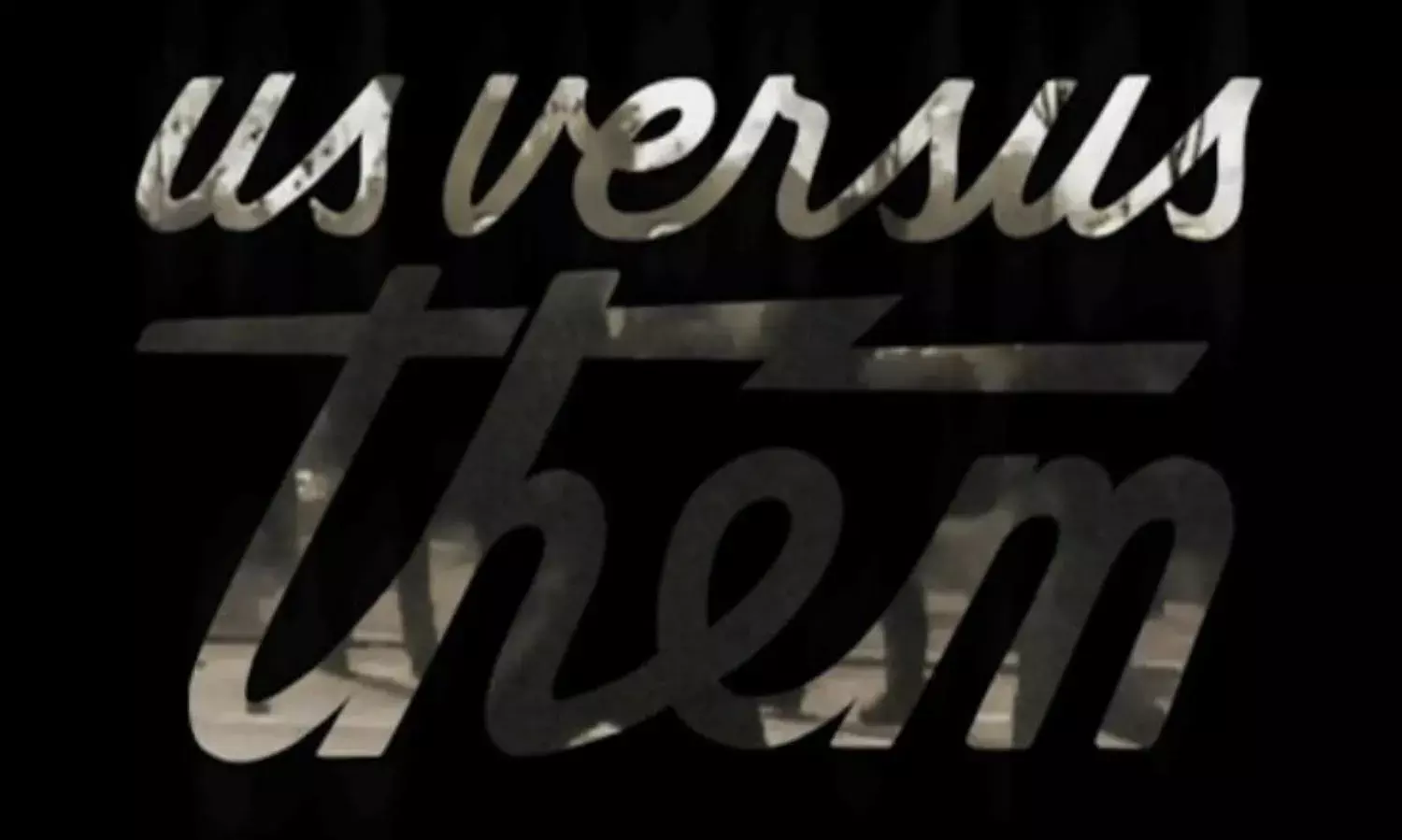A Populism Predicated on Us-versus-Them
In the era of populism, perception is reality

India is in the throes of unbridled populism, where dangerous passions are deliberately stoked and unleashed. While it is naïve to conflate this with the rise of right-wing politics solely, as political-populism was abused by centrist and leftist politics earlier, the sheer scale, intensity and impact of its current misuse is unprecedented in the history of independent India.
Today’s populism is perched and predicated on the edifice of Majoritarianism, which if manipulated carefully can galvanise, rationalise and normalise all actions that were hitherto deemed Un-Indian.
In this projection of a ‘new-normal’ of Indian existence, all historical texts, sovereign positions and facts are sought to be rewritten – names considered offensive are removed from roads, cities and even public schemes, names which typically belong to the ‘Others’, as expressed by the Majoritarian impulse. At its worst, the uncontrollable nature of this populism spills into hate speech, societal riots, lynchings and diminishment in various forms of the targeted Others.
Such times germinate the phenomenon of muscular politics and ‘powerful leaders’ who craft the narrative of us versus them, deride other institutions and oversimplify problems by ‘sorting out’ issues like comic book superheroes.
Hate is an important currency here, mobilised dangerously in its wanton and grotesque avatar to lend credence to the vengeful bestial spirit under the streets. Other constitutional restraints and balances – such as the law of the land and the judiciary per se – are painted as impediments to progress, and instant justice becomes the rallying cry.
Whenever political interferences are made in these relatively apolitical institutions, all concern is drowned in the dissonance of ‘correcting’ the supposed institutional biases.
While law-enforcing bodies like the investigative and policing agencies have been misused by all ruling dispensations since independence, today, additional murmurs abound of creeping politicisation in so far relatively insulated institutions like the armed forces, and professional governance bodies like statistical organisations or financial institutions.
Pandering to populistic instincts is not reflective of any ignorance on the politicians’ part. On the contrary, they know well its perverse utility and efficacy in mobilising, harvesting and banking the electoral harvest.
The success of populist actions lies in the successful polarising of society in line with the ‘us versus them’ theme. With the addition of fear-mongering, the subliminal instincts are aroused to their violent worst. Aided by a clueless, weak and uninspiring opposition, the juggernaut of hate rolls on uninterrupted.
One by one institutions, communities and individuals succumb to the seeming inevitability, and the spectre of political defections and party-hopping ensues in earnest. As the appetite for ‘revenge’ and the righting of ‘historical wrongs’ is duly whetted, politicians ignite even more meaningless and distractive populist agendas, seeking out the basest of basic instincts, aiming at the majority of citizens.
Sadly, India is shunning its own genealogical ‘idea’ and revolting against its foundational Gandhian rectitude. Patience to honour constitutional, legal and procedural processes has become a sign of weakness or ineptitude, just a stumbling-block before the promised nirvana.
Suddenly and ironically, the current unrest in Indian society proximates the intolerance, revisionism and bigotry of the very nations that are designated ‘enemies’ of this newly imagined India. Increasingly we look a lot less like ourselves, and a lot more like ‘enemy’ nations.
Today’s culture of mobocracy disdains the rigours, inclusivity and propriety of correctness, and therefore insulting and mocking expressions are brandished with much glee.
Yet another expression of this populist agenda has been the newly introduced phenomenon of publicly naming and shaming individuals, without due application of legal procedures. Beyond the obvious question of legality, such tactics are prone to political bias, abuse and propagation of a party agenda. Their potential misuse appears lost on the misguided masses.
The naming and shaming exercise ignores the maxim ‘Everyone charged with a criminal offence shall be presumed innocent until proved guilty according to law’. However, populism demands that the element of ‘according to law’ is crucially overlooked, and the mob thirst for ‘instant justice’ by way of naming-and-shaming, is insisted upon.
Like many populist stands that are ultimately struck down for falling short of the required legality, and yet, publicly insisted upon by reckless politicians owing to their narrative-creating impact, this is deliberate provocation. The intransigence of the state government in upping the ante and going to the Supreme Court in appeal, is calculated to generate optics that strengthens its misplaced credentials as a populist ‘go-getter’.
In the era of populism, perception is reality. Politicians know the importance and power of a resonating fear that requires a multitude of players, posturers, innuendoes and subtext to work in tandem to build a political narrative.
Here the fringe elements are allowed to brazenly vitiate the environment uninterrupted, with the option of denying their links to the government. The supposed moderates or officials then get into providing invaluable ‘context’ to this fringe, which then strengthens the hate-agenda in a nuanced manner.
Governmental investigative and law enforcement agencies then go about ‘solving’ those cases which could entail a biased resolution that amplifies the undeniable wrongs committed by a section of ‘them’, whilst going perfectly easy on the equivalent ‘us’ in the equation.
A circumstantial landscape then gets framed in the legitimacy afforded by officialdom and the accompanying entourage.
Nothing is done arbitrarily, and every action is calculated to piece together a formula and elicit the desired reaction from the electorates: moderation is mocked, as India and its temper, aspirations and even its Gods become less spiritual and more, angry.
The obvious flaws and pain of bad governmental decisions are managed by the cold logic that the discomfort to ‘them’ is a lot more than to ‘us’, thus worth persisting with.
It is only when the inevitable realisation dawns that ‘us’ and ‘them’ is really the same thing, that the chimera of populism is exposed.
History suggests that it eventually does and always has, but only after extracting a terrible price.



